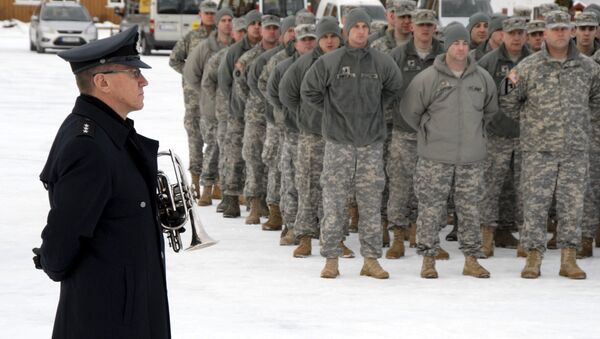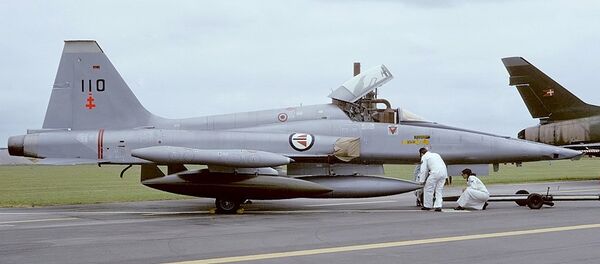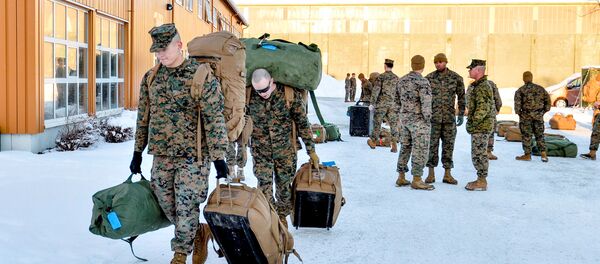Only five months into their trial period in Norway, the US marines have participated in several joint exercises with the Norwegian forces and their allies, including the major winter exercise Joint Viking, which was held in the counties of Troms and Finnmark in northernmost Norway, and are seeking to expand.
Øvelse Joint Viking: – U.S. Marines kan krige. Vi lærer dem å krige bedre om vinteren, sier sjef Telemark bataljon. https://t.co/57tW1HPDas pic.twitter.com/y8PXRAgVkh
— Forsvaret (@Forsvaret_no) March 8, 2017
Today, Norway and the US are discussing the usefulness of prolonging the agreement beyond 2017, Lars Gjemble of the Norwegian Defense Ministry told the Norwegian daily Verdens Gang. Lars Gjemble wrote in an email to Verdens Gang that the US Navy's rotation-based training and practice routines at Værnes are a test scheme that seems to work well and is currently under evaluation.
"There is an ongoing dialogue between the Armed Forces and the US Marine Corps about the exchange of experience and the assessment of how useful it is to possibly continue the scheme. It is too early to comment on whether the scheme will be continued and how," Lars Gjemble wrote.
"We could bring Marines out here in various capability sets, from airplanes, to ground maneuver, to logistics, to communications, to cyber. They can come out here and practice their skills with a partner of choice, and we would help coordinate that and lead that. They would come for two, three weeks, and learn and go back. That's a ready, capable force for the United States," Major General Niel Nelson, the commander of US Marine Corps Forces Europe and Africa, said, as quoted by the website Military.com.
In addition to the Værnes base, the Marine Rotational Force Europe also includes a 400-strong Marine Black Sea Rotational Force, based at Mihail Kogălniceanu, Romania, which has been active since 2010.
The US Marines arrived in Norway as part of a bilateral agreement on request from the American side. The general idea behind the transfer is to boost Norway's defense against perceived Russian "aggression" and is in line with similar buildups in other parts of Europe, such as the Baltic region.
Ever since late 2016, the Værnes agreement has been a subject of debate, since Norway specifically declared that it would not allow foreign combat forces or military bases on Norwegian soil during peacetime. Therefore, Norwegian army bosses and government officials have repeatedly downplayed the importance of the rotational force, whereas US Secretary of Defense Ashton Carter returned the courtesy by maintaining that the US had "no closer ally to Norway."
Never miss a story again — sign up to our Telegram channel and we'll keep you up to speed!





